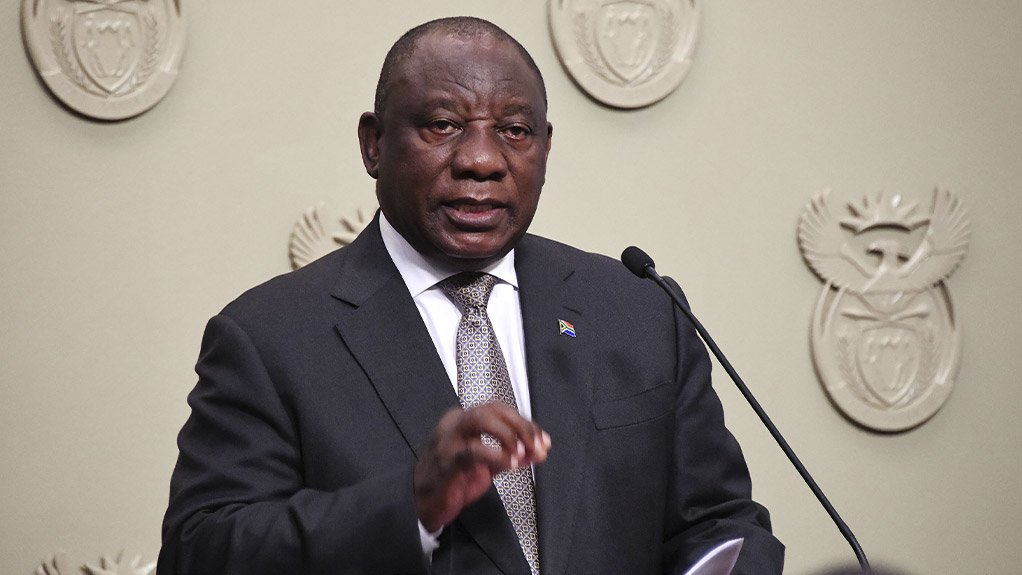South Africa's two biggest opposition parties want National Assembly Speaker Nosiviwe Mapisa-Nqakula to reconsider a "pro-Ramaphosa" member of an independent panel appointed to determine if President Cyril Ramaphosa has a case to answer over Phala Phala.
On Wednesday evening, Mapisa-Nqakula announced that she had appointed former Chief Justice Sandile Ngcobo, retired judge Thokozile Masipa and UCT law professor Richard Calland to the panel, which forms part of the impeachment process in terms of Section 89 of the Constitution.
The Democratic Alliance (DA) and the Economic Freedom Fighters (EFF) objected to Calland's appointment while the ATM, who brought the Section 89 motion, said it would not challenge his appointment.
DA chief whip Siviwe Gwarube said her party was "deeply concerned" about the panel's composition, while the EFF said it was "appalled" and rejected the panel.
Gwarube said the panel should be objective and independent to do its work.
In a statement, she said, "While the DA has no concerns about the members of the judiciary who have been appointed, we are not convinced of Professor Richard Calland's objectivity and independence. Professor Calland is no doubt a respected academic in the legal fraternity but is also a political commentator who routinely plays into the political fray; publicly offering his political views especially as it pertains to the president."
"Professor Calland has, through his political commentary and social media pronouncements, displayed a consistent bias towards the president, which makes him unsuitable for this role given that this panel must be free from any hint of bias."
She said it was unclear why Mapisa-Nqakula would select someone who cannot be viewed as independent based on his public work.
She said the DA would bring the matter to Mapisa-Nqakula's attention when she met with political parties next week.
The EFF said it wanted to canvass other opposition parties before the meeting with the Speaker.
"The EFF will consult with other political parties represented in Parliament to reverse the appointment of a panel of Ramaphosa's cheerleaders. The prerogative to appoint members of the panel given to the Speaker does not mean she can do so without rationality and consideration of nominations by other political parties," the EFF said in a statement.
"Her appointments are irrational, biased and are a complete disregard of the consultative process with political parties represented in Parliament," read the statement.
"Her appointments have no regard for the nominations by a majority of the opposition parties represented in Parliament and, at face value, are to the detriment of accountability. The 'independent panel' will undoubtedly be biased and will favour Ramaphosa, by defending his money laundering and use of state resources to conceal a crime as not an ethical breach of the Constitution."
The EFF said it was "most appalled" by Calland's appointment, and cited his perceived bias towards Ramaphosa.
"Mapisa-Nqakula has brought shame to Parliament and the Constitution of South Africa with appointments which are pre-determined and will absolve Ramaphosa of his breach of his oath of office."
The ATM said in a statement it was aware of Calland's "complimentary public comments" towards Ramaphosa.
"However, in good faith, we will not delay the process by challenging his appointment," the statement read.
The ATM's view was that the panellists would be objective.
"The ATM is furthermore convinced the work of the panel should be very easy because the standard against which they will be evaluating submitted evidence is cast in stone, and also that the evidence submitted is not only uncontested, but incontestable."
The panel will have 30 days to report back to Mapisa-Nqakula.
It must make a recommendation whether sufficient evidence existed to show Ramaphosa committed any of the violations specified in the motion.
It must immediately provide Ramaphosa with copies of all information available to it relating to the inquiry and provide him with a reasonable opportunity to respond, in writing, to all relevant allegations against him.
The panel cannot have oral hearings and must limit its inquiry to the information placed before it by MPs.
In its report, it must include any findings, with its reasons, upon which its recommendations are based. It must also include a minority view, if there is one.
The panel's recommendation will be put to a vote in the National Assembly.
A majority is required to proceed with a Section 89 inquiry - similar to what Public Protector Busisiwe Mkhwebane is currently undergoing.
If that committee recommends Ramaphosa's removal, a two-thirds majority would be required.
If that happened, he would lose all the benefits bestowed on former presidents, and he would not be allowed to occupy public office again.
When he refused to answer a question on Phala Phala in the National Assembly two weeks ago, Ramaphosa undertook to cooperate with the Section 89 process.
EMAIL THIS ARTICLE SAVE THIS ARTICLE
To subscribe email subscriptions@creamermedia.co.za or click here
To advertise email advertising@creamermedia.co.za or click here











